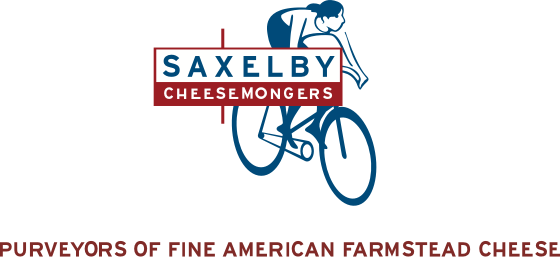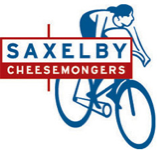
When the writer Ella Winter coined the phrase, "you can't go home again," she must not have been talking about farm kids. For some, like Emily Montgomery—the sixth generation of her family to call Highland Farm in Wayne, Pennsylvania, home—the pull of the family business can act like gravity.
Montgomery and her husband Jay are the founders of Calkins Creamery, an artisan farmstead operation that sources all of its milk from Highland Farm's milking herd of 100 Holstein cattle. She makes a wonderful bloomy rind cheese called Noble Road that epitomizes the buttery, mushroomy, and ever so slightly tart qualities of a great brie—also available in a cute mini wheel—as well as a dynamite raw milk havarti.

Making cheese on the family farm was never the plan. After graduating from Penn State with a degree in food science, Montgomery got a job with Nestle in Maryland, doing quality assurance for ice cream production. That's where she met Jay, a fellow employee, and when the company transferred him to California, Montgomery swapped ice cream bars for green juice with a research and development role at a juice and smoothie manufacturer.
The work was good, but Montgomery and her husband wanted to start a family closer to their own in Pennsylvania and Indiana. Returning to the old farm took on new appeal. "It's been in the family since the 1840s and it's a beautiful area," she says. "That's hard to walk away from."
Delicious cheese is its own reward, however "our whole goal wasn't to have an awesome business," Montgomery explains. "It was to create a path to help sustain the family farm." As a value-added product, cheese made from high quality milk can yield more revenue for a farm than selling fresh milk alone. The creamery pays a premium for this milk over the commodity price offered by the region's milk haulers, which collect milk from a host of farms to sell to dairy manufacturers in New York and New Jersey.

As small farms shutter at alarming rates, Montgomery worries about the future of the region's dairy business. Fewer farms in the area means less agricultural infrastructure for those that remain. In 2020, the breeding service that Highland Farm used to inseminate its cattle stopped coming to the area. Montgomery's brother Zack is a partner with their parents on the farm; now the tricky work of breeding is his responsibility.
Calkins buys 35% of Highland Farm's milk to make 200 to 400 pounds of cheese a day. Montgomery wants to keep growing the business, but in sustainable ways. Disposing of excess whey from larger batches would become a problem all its own. So would quality control when making scaled-up batches of cheese. Instead, Montgomery has her eyes set on agritourism. She offered tours and organized tastings before the pandemic and would like to do so again. A larger cheese cave wouldn't hurt, either.

The Montgomerys have three kids who aren't tasked with many farm chores. She wants to give them the choice she didn't feel she had growing up. "I'm happy they have been raised to learn hard work and understand the opportunities that exist within our family business, but I want them to explore career paths that fit them."
Like a rocket returning from space, sometimes it takes a long, elliptical orbit before gravity pulls you back home.
Taste the amazing cheeses from Calkins Creamery!
Photo of Emily Montgomery shot by Jill C. Smith; farm photos courtesy of Calkins Creamery.

